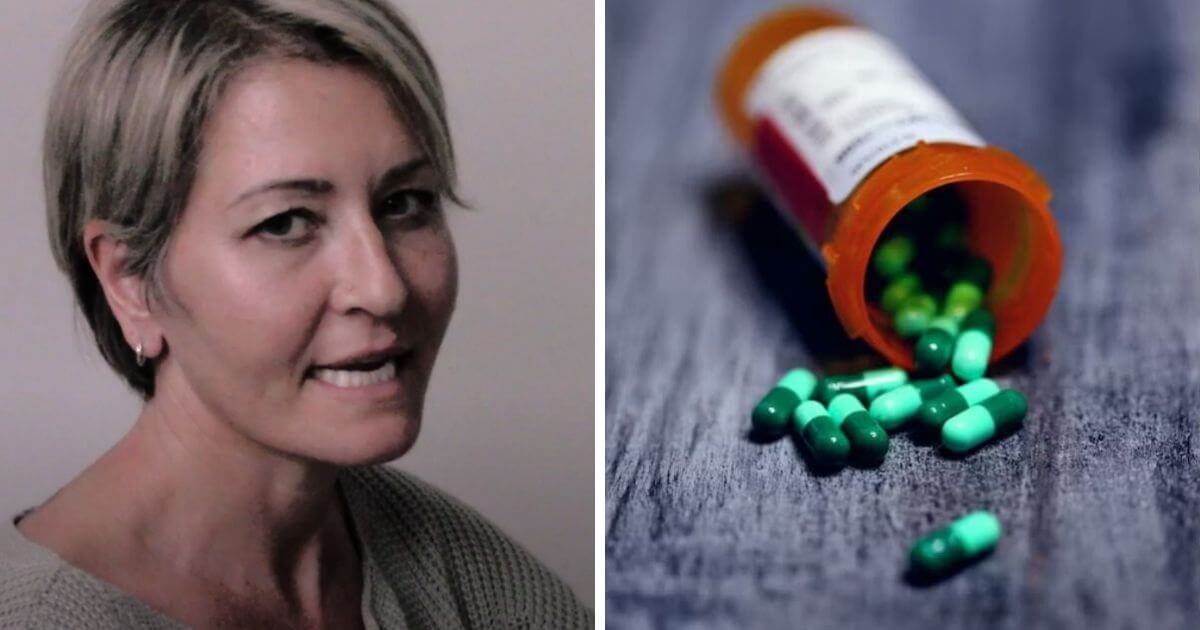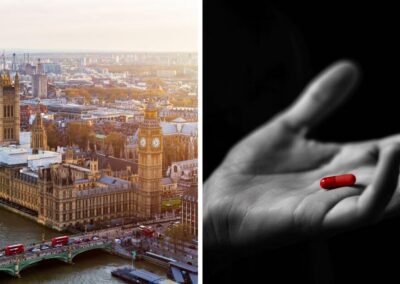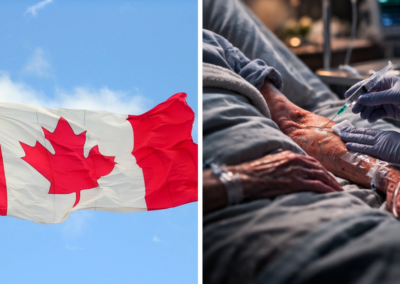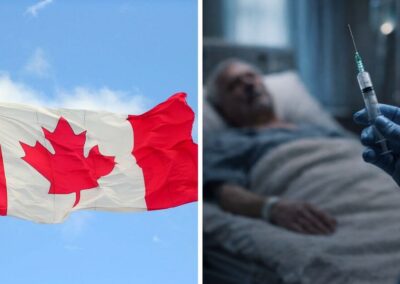A Canadian “death doula” is aiming to raise money to fund her personalised euthanasia and assisted suicide service in Ontario.
Founder and Executive Director of Journey Home for Empowered Living and Dying, Renee Moor, a so-called “death doula”, said her organisation is looking to raise $500,000 to move to a new place that can accommodate a “sanctuary”, where people can die by euthanasia or assisted suicide in “private, home-like rooms”. A death doula is a person who acts in “a non-medical role and as a supporter/guide/advocate in end-of-life care”.
Moor explained that the sanctuary is “a place where death is not a medical event”, adding that hospitals are “a bit more institutionali[s]ed” and “not everyone wants [an assisted suicide or euthanasia] experience in their home”.
Moor wants to open her sanctuary in Ontario, a place that made headlines last year after members of a key assisted suicide and euthanasia review committee found that vulnerable people were facing “undue influence” and “potential coercion”. Some members of the committee said that discussing assisted suicide and euthanasia with socially vulnerable people may “confirm an impression that their life is not worth living”.
Earlier this year, Ontario GP Dr Ramona Coelho, a member of the committee, said Canada’s euthanasia and assisted suicide programme was “out of control”, adding “I wouldn’t even call it a slippery slope. Canada has fallen off a cliff”.
Rise of for-profit euthanasia houses in Canada
While Moor’s initiative aims to be funded through donations, other locations have sought to make financial gains from people wanting to end their own lives. In 2023, a funeral home in Canada launched a ‘personalised’ euthanasia service that starts at $700, which includes the option of watching a movie or drinking wine as you die.
The head of Complexe Funéraire du Haut-Richelieu, Mathieu Baker, said that launching the new service was a natural step for his company, which aims to provide customised care that meets clients’ needs.
Baker said “The person who made the decision is usually very convinced, but the kids, the siblings, or other family members aren’t necessarily on the same page”.
He said that many people do not want to die in hospital or in a care home where staff cannot provide a personalised experience of death.
“Do you want to watch a movie? Do you want a glass of wine? Some people want to be in groups of four or five, and we’ve had groups of up to 30 people”.
Assisted suicide and euthanasia now responsible for almost 5% of deaths in Canada
Moor described her organisation as “MAiD positive”. Medical Assistance in Dying (MAiD) was the name given to Canada’s euthanasia and assisted suicide programme, which continues to expand. In 2021, the Canadian Parliament repealed the requirement that the natural death of those applying for assisted suicide be “reasonably foreseeable”. This took place only five years after the original legislation allowing euthanasia and assisted suicide was passed in 2016.
In 2024, legislation was introduced so that euthanasia and assisted suicide would be legal on the grounds of mental health alone in March 2027, whilst a Parliamentary committee in Canada recommended in 2023 that euthanasia be made available for children under certain conditions, and that it be made more easily available for prisoners.
According to Canada’s latest annual report on its euthanasia and assisted suicide programme, 15,343 lives were ended by assisted suicide or euthanasia, an increase of 15.8% from the previous year, accounting for 4.7% of all deaths in Canada.
Spokesperson for Right To Life UK, Catherine Robinson, said “It is deeply sad to see the growth of the ‘euthanasia industry’ in Canada, and the rise of euthanasia houses, many of which seek to make a profit from encouraging people to die there, does little other than take advantage of society’s most vulnerable”.
“As last year’s ‘MAiD Death Review Committee Report’ illustrated, there are enormous problems with vulnerable people in Ontario facing ‘undue influence’ and ‘potential coercion’. More euthanasia houses are the last thing Ontario needs”.












